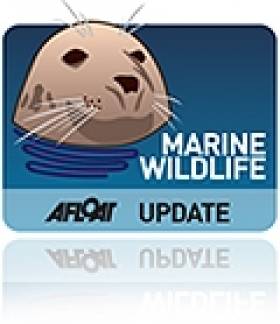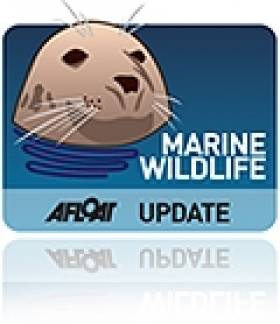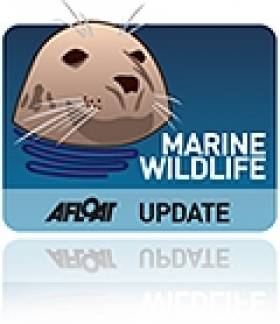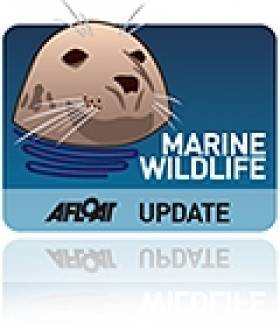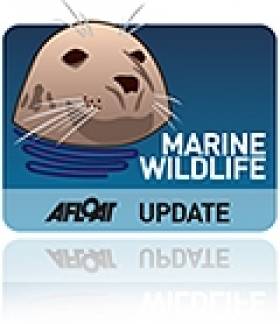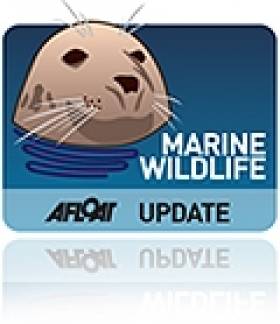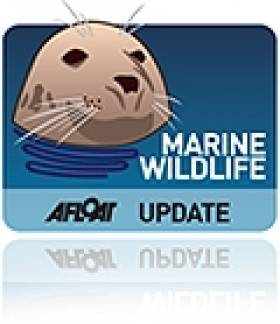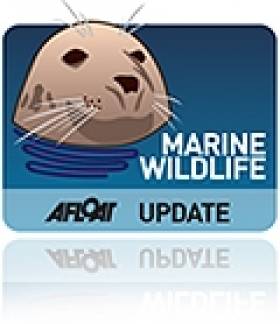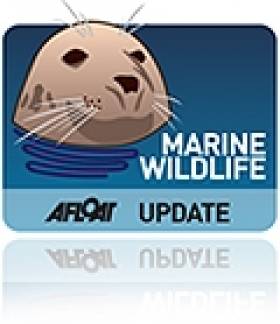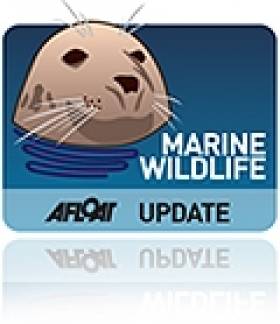Displaying items by tag: killer whales
Pollution Threat To Ireland's Killer Whale Regulars
#MarineWildlife - "High pollution levels" could be to blame for the failure of Ireland's only resident killer whale pod to produce any calves.
As reported two years ago on Afloat.ie, the well-known orca pod often seen between Scotland and Ireland has been judged to be on the 'brink of extinction', with its conservation status described as "critical".
Since then the pod's number has dwindled from nine adults to just seven, with no juveniles recorded in the 30 years the so-called Scottish West Coast Community has been monitored by researchers.
One reason for that, posits Dr Simon Berrow of the Irish Whale and Dolphin Group (IWDG), could be "high pollution levels" in the food chain which may have rendered them infertile.
“If you’re moving all around Europe and living a long time, you get a lot of contaminants from fish over time,” he told the Irish Mirror.
That's a theory backed up by evidence of pollutants detected in whale carcasses beached around Ireland in recent years.
Far from the ferocious beasts of horror tales, Ireland's killer whales are considered among the gentle giants in the marine wildlife world - with one recently the recipient of a shark bite on his tail fluke.
Marine scientists have long been interested in the group for their genetic distinctness from other orcas in the north Atlantic, bearing closer relation to their Antarctic cousins.
#MarineWildlife - Six weeks after the first sighting of basking sharks this year off West Cork comes news that a pair of killer whales have been seen near Baltimore.
The Southern Star reports on the rare sight for the area of these cetaceans with a fearsome reputation, but who have never been known to kill a human in the wild.
It's believed that the orca duo may be part of a bigger pod that was feeding off West Cork at the time.
And they seem to be happy finding their own food, unlike their counterparts in the Southern Ocean who have taken to nabbing fishermen's catches.
According to the Guardian, killer whales off the Crozet Islands between Africa and Antarctica have learned to grab Patagonian tooth fish off longlines since a fishery was established there some 20 years ago.
Now scientists say they've found a link between this near constant supply of food and the orcas' reproductive rates. In other words, more fish means more, and healthier, killer whale calves.
Shark Takes A Bite Out Of Scottish Killer Whale
#MarineWildlife - A conspicuous chunk missing from the tail fluke of a killer whale resident in Scottish waters is evidence of an altercation with a shark, as BBC News reports.
The orca, known as John Doe, is one of the familiar pod of killer whales that's commonly seen off the west of Scotland but has also been spotted in Donegal and off the east Scottish coast near Aberdeen.
Marine scientists have long been interested in the group because of its genetic distinctness from other killer whales in the north Atlantic – with studies showing they bear closer relation to orcas found in Antarctic waters.
And this latest discovery is troubling in light of the group's already precarious status, with no calves recorded among them since experts began to study them two decades ago.
The Hebridean Whale and Dolphin Trust (HWDT) said it could not "realistically speculate" on what species of shark may have been to blame for the bite.
But one it most certainly isn't is the plankton-hungry basking shark, a species that's seen a drastic fall in numbers locally over the past year, according to the Irish Examiner.
Sightings of the ocean's second largest fish – after the similarly harmless whale shark – have dwindled by a third on 2013 figures, which the HWDT says is part of a trend.
However, experts have moved to quell any concerns over the health of the marine species, as they may simply have moved to offshore waters – or below the surface – in search of greater supplies of their favourite foodstuff.
Basking sharks may be seen less often, but there's another shark species in the oceans that even the experts know very little about – and one of them was just landed in the Philippines.
The Washington Post has more on the 'mysterious' megamouth shark, a prehistoric looking beast that was only discovered by science in 1976 and has been sighted just 64 times since then.
Scientists still have no idea of the size of their population or in what oceans they're concentrated, and this find may reveal little more - but it might tell us something new about their plankton-based diet and their unique physiology.
Dolphin Visitor Makes A Friend Off Aran Islands
#MarineWildlife - 'Bad boy' dolphin visitor Clet may have struck up a beautiful friendship with a fellow 'dolphina-non-grata', according to the Galway Advertiser.
After being spotted earlier this month in Kerry coastal waters, Clet – the French cetacean interloper first seen in West Cork – was thought to be headed towards Fungie's usual haunt around Dingle.
But in recent days he's been spotted off Inis Oírr in the Aran Islands, frolicking with another recent resident of that island.
Sandy is perhaps better known to Afloat.ie readers as Dusty, the Doolin dolphin that was the subject of much controversy last summer after a number of aggressive acts against swimmers, one of whom was hospitalised with serious injuries.
Over the summer it was recorded that she'd made a permanent move across Galway Bay to avoid blasting works in Doolin Harbour.
And now with Clet's arrival, it seems these two dolphins with bad reputations have made the perfect couple, with the Irish Whale and Dolphin Group saying Clet has "hit it right off" with Sandy.
Still, the IWDG has reiterated its warning to swimmers and other water users to stay clear of the pair based on their track record.
In other cetacean news, the Irish Examiner reports on a rare sighting of killer whales off the south-west coast recently.
The seven-strong orca pod was spotted in the Atlantic near the Porcupine Seablight by researchers on the IWDG's Cetaceans of the Frontier Survey cruise on board the RV Celtic Explorer.
Joe.ie has images of the killer whales, which are common to North Atlantic waters but rarely trouble Irish shores; the last significant sighting here was a different orca family in Lough Swilly visiting from Scotland, and believed to be on the 'brink of extinction'.
Elsewhere, BBC News has footage of a large dolphin pod swimming close to the shore in Portrush on the North Coast, in what's described as a "very unusual" occurrence.
And here's a link to last night's RTE television programme on basking sharks.
#MarineWildlife - BBC News reports that three killer whales from a community of orcas off the Scottish west coast have been spotted off the country's east coast for the first time since scientists began monitoring the group in the 1990s.
Mark Hosford of the Hebridean Whale and Dolphin Trust described the sighting as "a really exciting development".
He added: "The west coast community is thought to be the only resident population of orca in the British Isles, and understanding their behaviour and movements is crucial to the conservation of these remarkable creatures."
The group's normal range includes Scotland's north and west coasts to the west coast of Ireland, and is thought to comprise just nine older whales - which are also believed to be genetically distinct from other orcas in the North Atlantic, showing much closer similarity to Antarctic killer whales.
As reported on Afloat.ie earlier this year, marine wildlife experts fear that the group is now on the "brink of extinction".
Killer Whales Surprise Angling Brothers Off Donegal
#MarineWildlife - Following the good news of the beached whale rescue in Co Meath today, the Irish Independent reports on a surprise killer whale sighting in Donegal.
Sea angling brothers John and Pat Cunningham described the "beautiful sight" of two orcas who emerged from the water by their rowing boat half a mile from the coast off Glencolmcille.
"I've only ever seen them in the North Sea when I was commercial fishing up there", said John of the unexpected rendezvous.
The Irish Whale and Dolphin Group's record of the sighting speculates that the killer whales may be the same pair spotted off Mizen Head in Cork on 11 June and Slea Head in Kerry a day later.
Killer whales are a rare sight so close to the shore but they are no strangers to Donegal - as last year's appearance of a well known orca pod in Lough Swilly demonstrates.
However, fears were expressed earlier this year that that particular family, often seen off the coasts of Scotland and Ireland, is on the 'brink of extinction'.
'Frontier' Surveyors Meet Sperm Whales and Killer Whale
#MarineWildlife - Sperm whales and a killer whale were among the finds on the last big effort of this year's Cetaceans on the Frontier survey led jointly by the Galway-Mayo Institute of Technology (GMIT) and the Irish Whale and Dolphin Group (IWDG).
As previously reported on Afloat.ie, marine scientists from GMIT's Marine and Freshwater Research Centre are on board the RV Celtic Explorer to carry out the fourth dedicated survey of cetaceans on the continental shelf edge.
The ship was surveying a zig-zag pattern in the Atlantic yesterday 2 February, some 55 nautical miles west-by-northwest of Achill Island (visible on this map HERE) when the team encountered at least two sperm whales, though an elusive third may also have been present - as indicated by the hydrophone being towed 200m behind the vessel.
"The blows continued and as we got closer, more and more body of the surfacing whale could be seen until we were treated to some reasonable views of the steep nose, long flat back and stumpy dorsal fin on initial surfacing followed by a thick tail stock with ‘knuckles’ seen when flaking," writes Niall Keogh on the Cetaceans on the Frontier blog.
Soon after that, the researchers were treated to their first sight of a killer whale in Irish waters - followed by a number of pilot whales surfacing close to the ship.
Killer Whale Pod Nearing Its End Fear Experts
#MarineWildlife - A well-known killer whale pod often seen off the coasts of Scotland and Ireland is on the 'brink of extinction', as HeraldScotland reports.
Marine wildlife experts who have been monitoring the group for two decades say that no live calves have been recorded since their research began, and that the females of the group can no longer reproduce.
The orca pod, of which nine adults remain, is said to be genetically distinct from other killer whales in the North Atlantic, and bares closer relation to their cousins in Antarctic waters.
A spokesperson for the Hebridean Whale and Dolphin Trust described as "critical" the conservation status of the group.
"As sad as this is, the loss of this group has severe consequences, resulting in the loss of an evolutionary significant group of individuals," she added.
Killer Whales Surround Anglers in Lough Swilly
#MARINE WILDLIFE - The video above shows the moment when an angling boat was surrounded by a pod of killer whales at the mouth of Lough Swilly in Co Donegal.
Sea angler Kevin Doherty, whose boat was treated to the spectacle, told UTV News: "We knew ourselves at that moment we were going to witness something special."
Local wildlife experts say the orca family came from the Scottish Hebrides and as well known - but this is the first time the whole family group has been recorded together on Ireland's North coast.
Killer Whale Pair Spotted Near Kinsale
#MARINE WILDLIFE - Two killer whales have been spotted near Kinsale in recent weeks, the Irish Whale and Dolphin Group (IWDG) reports.
Two separate sightings of the orca pair near Barry's Head have been confirmed by the group, via photos provided by John Murphy and Richard Cussen on 5 March, during what is normally the 'low season' for whale watching in Ireland.
The pair comprises one adult male and a smaller whale which is likely an adult female. It is not yet known, however, whether the whales are new to Irish or Scottish waters.
According to the IWDG's Pádraig Whooley, it is "interesting that they have stayed close to their original position and suggests they may have found 'rich pickings'".
In other news, the Whale and Dolphin Roadshow will be at the Galway Shopping Centre from 22-25 March in time for the European Cetacean Society Conference.
The roadshow "is a fantastic opportunity to learn more about whales, dolphins and porpoise of the ASCOBANS region" that encompasses the Baltic Sea, Northeast Atlantic and Irish and North Seas.



























